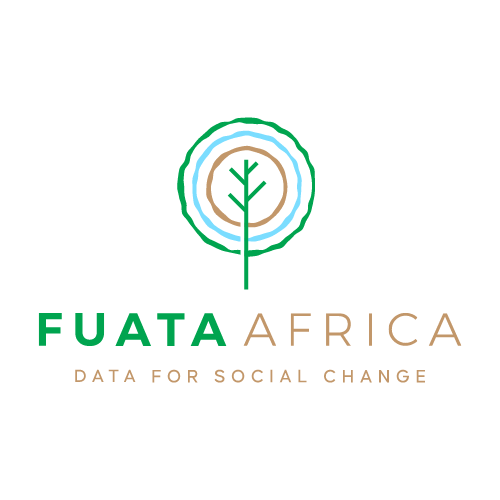
At Fuata Africa, we are passionate about people and collaboration. We wanted our corporate identity to embody that and convey our focus on the African context, economic development and
impact.
We settled on 3 circles that represent i) rootedness in context (the first circle) symbolised by
an earthy colour that we also give to ‘AFRICA’ to make the symbolic connection that we use
to challenge ourselves, partners and clients to pay attention to contextual nuances, richness
and uniqueness of each African country.
This is followed by a circle of development, innovation or broadly improving things for the
better that we associate with colour blue. For Fuata, the best way we know how is through
entrepreneurship: high-impact ventures that drive innovations and economic development
in African nations.
If we do that well, a third circle of impact would follow that we associate with colour green.
This colour helps us think of circulate economies, regeneration, connectedness and broadly
well-being that we hope to contribute through our work. We see impact through the lenses
of social change; meaning what we do needs to be practically felt by the local people of
Africa. For us, social change in the African continent is likely to occur and be systemic if it is
driven by ventures either co-founded or headquartered in Africa. We know this will take time
and is non-linear but our mission, nevertheless. These three circles are all woven and
connected by this overarching mission of social change as the fundamental basis of what
deeply roots or drives our economic development efforts.